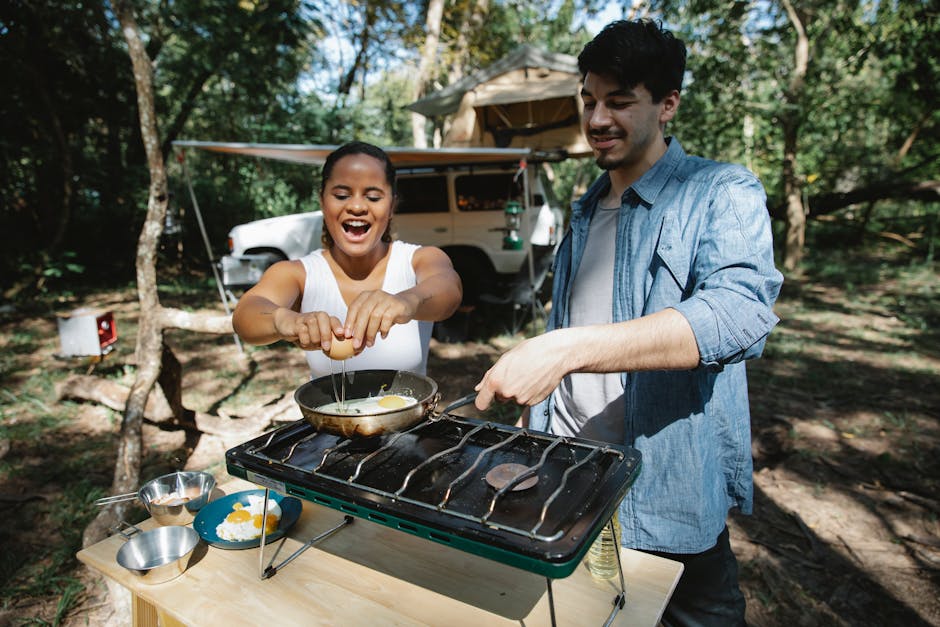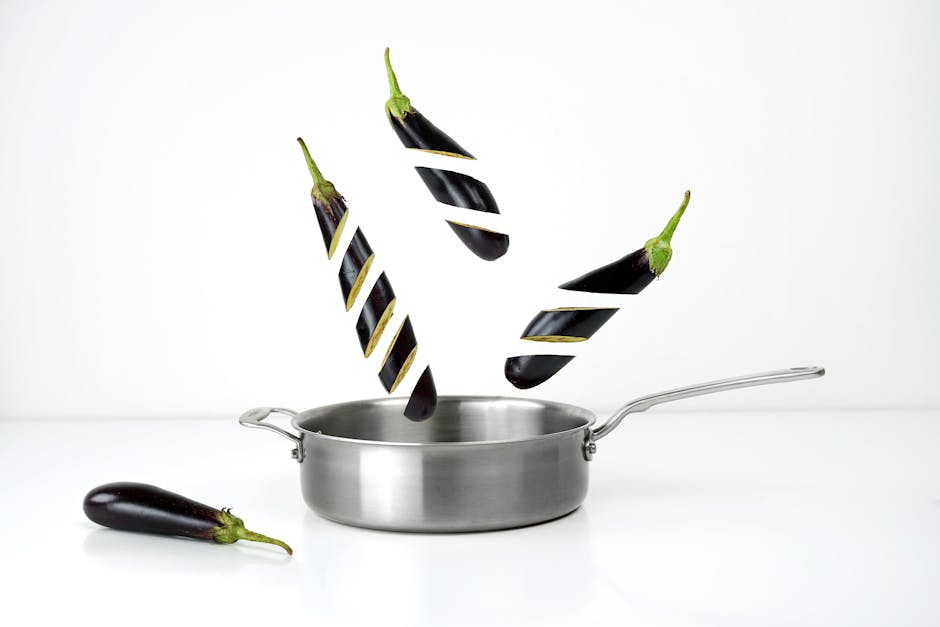Exploring the World of Lightweight Camp Cookware
When it comes to outdoor adventures, having the right gear can make all the difference. Whether you’re backpacking through the wilderness, camping in the mountains, or embarking on a long-distance hiking trip, having lightweight camp cookware can enhance your experience and make meal preparation a breeze. In this comprehensive guide, we will delve into the world of lightweight camp cookware, exploring its benefits, types, features, and how to choose the best gear for your next outdoor excursion.
The Evolution of Camp Cookware
Camp cookware has come a long way from the heavy, bulky pots and pans of the past. With advancements in materials and technology, manufacturers have been able to create cookware that is not only durable and functional but also incredibly lightweight. Lightweight camp cookware is designed specifically for outdoor enthusiasts who need to carry their gear for long distances, making it an essential part of any backpacker’s kit.
One of the earliest forms of camp cookware was the cast iron skillet, which was popular among early settlers and pioneers. While durable and efficient for cooking over an open flame, cast iron cookware is notoriously heavy and cumbersome to carry. As outdoor enthusiasts began to prioritize lightweight gear for their adventures, manufacturers started to develop innovative solutions to meet their needs.
Types of Lightweight Camp Cookware
There are several types of lightweight camp cookware available on the market today, each with its own unique features and benefits. Some of the most popular types include:
1. Titanium Cookware
Titanium camp cookware is known for its exceptional strength-to-weight ratio, making it one of the lightest and most durable options on the market. Titanium is corrosion-resistant, non-toxic, and does not impart any metallic taste to food, making it a popular choice among outdoor enthusiasts. While titanium cookware can be more expensive than other materials, its durability and longevity make it a worthwhile investment for serious adventurers.

2. Aluminum Cookware
Aluminum camp cookware is another lightweight option that is popular among backpackers and campers. Aluminum is an excellent conductor of heat, allowing for quick and even cooking, while also being lightweight and affordable. However, aluminum cookware can be prone to scratching and denting, so it may not be as durable as titanium or stainless steel options.

3. Stainless Steel Cookware
Stainless steel camp cookware is known for its durability and resistance to corrosion, making it a popular choice for outdoor cooking. While stainless steel cookware may be heavier than titanium or aluminum options, it is incredibly robust and can withstand high temperatures and rough handling. Stainless steel cookware is also easy to clean and maintain, making it a practical choice for extended trips in the backcountry.

Features to Consider
When choosing lightweight camp cookware, there are several features to consider to ensure you select the best gear for your needs. Some key features to look out for include:
1. Weight
One of the most important factors to consider when choosing lightweight camp cookware is the weight of the gear. Look for cookware that is light enough to carry comfortably without sacrificing durability or functionality. Titanium cookware is often the lightest option available, making it ideal for backpackers and ultralight enthusiasts.
2. Size and Capacity
Consider the size and capacity of the cookware to ensure it meets your cooking needs. Choose pots and pans that are large enough to cook your meals but not so bulky that they take up too much space in your pack. Many lightweight camp cookware sets come with nested pots and pans to save space and reduce weight.
3. Heat Distribution
Good heat distribution is essential for efficient cooking, especially when using a camp stove or open flame. Look for cookware that distributes heat evenly to prevent hot spots and ensure that your food cooks evenly. Titanium and aluminum cookware are known for their excellent heat conduction, making them popular choices for outdoor cooking.
4. Non-Stick Coating
Some lightweight camp cookware comes with a non-stick coating to prevent food from sticking to the surface and make cleaning easier. While non-stick coatings can be convenient, they may wear off over time, especially with regular use and exposure to high temperatures. Consider whether a non-stick coating is a priority for your cooking style and needs.
Choosing the Right Lightweight Camp Cookware
With so many options available, choosing the right lightweight camp cookware can be a daunting task. To help you make an informed decision, consider the following tips:
1. Research Different Brands
Research different brands and read reviews from other outdoor enthusiasts to get an idea of the quality and performance of different lightweight camp cookware options. Look for reputable brands known for their durability, innovation, and attention to detail.
2. Consider Your Cooking Style
Consider your cooking style and the types of meals you like to prepare when choosing lightweight camp cookware. If you enjoy gourmet cooking in the backcountry, you may need a more versatile set of pots and pans with different sizes and features. If you prefer simple meals and quick cleanup, a basic set of lightweight cookware may be all you need.
3. Evaluate Your Budget
Set a budget for your lightweight camp cookware and prioritize features that are most important to you. While titanium cookware may be more expensive upfront, it can last a lifetime with proper care and maintenance. Consider the long-term value and durability of the cookware when making your decision.
Expert Opinions
We reached out to outdoor experts and experienced backpackers for their insights on lightweight camp cookware. Here’s what they had to say:
“Lightweight camp cookware is a game-changer for long-distance hiking trips. Investing in quality gear can make a significant difference in your overall enjoyment of the outdoors.” – Sarah, Experienced Backpacker
“I love using titanium cookware for its durability and weight savings. It’s amazing how much of a difference a few ounces can make when you’re carrying your gear for miles on end.” – James, Outdoor Enthusiast
Common Misconceptions
One common misconception about lightweight camp cookware is that it sacrifices durability for weight savings. While lightweight cookware may be thinner and more compact than traditional options, many manufacturers use innovative materials and construction techniques to ensure their products are both lightweight and durable. Titanium, aluminum, and stainless steel cookware are all known for their durability and longevity, making them reliable choices for outdoor adventures.
Comparative Analysis
Let’s compare the pros and cons of titanium, aluminum, and stainless steel camp cookware:
Titanium
Pros: Lightweight, durable, corrosion-resistant, non-toxic
Cons: Expensive, may have lower heat retention compared to other materials
Aluminum
Pros: Lightweight, excellent heat conduction, affordable
Cons: Prone to scratching and denting, may impart a metallic taste to food
Stainless Steel
Pros: Durable, corrosion-resistant, easy to clean
Cons: Heavier than titanium and aluminum, may have uneven heat distribution
Conclusion
Lightweight camp cookware is an essential part of any outdoor adventure, providing lightweight, durable, and functional gear for cooking in the backcountry. Whether you’re backpacking through the wilderness, camping in the mountains, or embarking on a long-distance hiking trip, having the right cookware can enhance your experience and make meal preparation a breeze. By choosing the right lightweight camp cookware for your needs and prioritizing features like weight, size, heat distribution, and non-stick coatings, you can enjoy delicious meals in the great outdoors without weighing down your pack.
To wrap things up, investing in high-quality lightweight camp cookware is a worthwhile investment for any outdoor enthusiast looking to elevate their cooking experience in the backcountry. With the right gear and a spirit of adventure, you can create memorable meals and enjoy the beauty of nature wherever your travels may take you.

